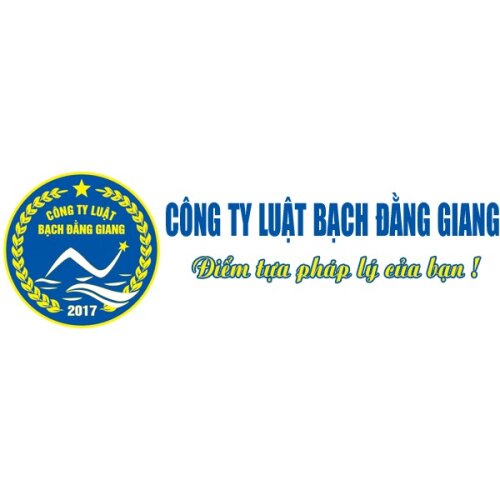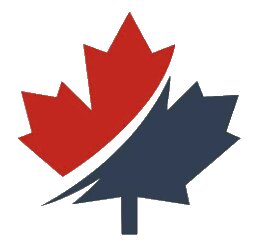Best Sanctions & Export Controls Lawyers in Vietnam
Share your needs with us, get contacted by law firms.
Free. Takes 2 min.
Or refine your search by selecting a city:
List of the best lawyers in Vietnam
![[DDC] DONG DU INTERNATIONAL ACCOUNTING, TAXES & LEGAL CONSULTING GROUP HCMC VIETNAM](https://lawzana.com/storage/firms/2690/17617306202399.jpg)
About Sanctions & Export Controls Law in Vietnam
Sanctions and export controls law in Vietnam refers to the set of regulations and measures implemented by the Vietnamese government to control the movement of certain goods, services, and technologies across its borders. These laws are designed to protect national security, comply with international obligations, prevent proliferation of weapons, and enforce foreign policy objectives. Vietnam’s approach combines domestic legislation with its commitments as a member of the United Nations and other international agreements. Export controls typically regulate merchandise and technology that could have military or dual-use applications, while sanctions target countries, individuals, or entities subject to international restrictions.
Why You May Need a Lawyer
Navigating sanctions and export controls laws can be complex due to the technicalities and serious consequences for non-compliance. You may need a lawyer if you are involved in cross-border trade, exporting or importing controlled goods, or engaging with individuals or entities that may be affected by international sanctions. Legal professionals can assist in obtaining necessary permits, ensuring due diligence, conducting internal compliance audits, and representing your business in the event of enforcement actions or disputes with governmental authorities. Furthermore, lawyers can help interpret constantly evolving regulations and advise on mitigating legal risks in international transactions.
Local Laws Overview
Vietnam’s legal framework for sanctions and export controls is a combination of domestic statutes and Vietnam’s adherence to international treaties. The key aspects include:
- Export Control Law: Vietnam passed its Law on Export Control in 2017, which establishes a formal system for controlling the export of defense-related goods, nuclear and radioactive substances, and dual-use items.
- Sanctions Implementation: Vietnam implements United Nations Security Council resolutions concerning sanctions, including asset freezes, travel bans, and restrictions on trading with sanctioned states or entities.
- Licensing and Registration: Certain imports and exports require licenses from the Ministry of Industry and Trade, the Ministry of National Defence, or other competent authorities.
- Penalties: Violations can result in severe administrative penalties, civil liabilities, or even criminal prosecution, depending on the nature of the infraction.
- Government Agencies: The Ministry of Industry and Trade is the principal body for enforcing export controls, while the Ministry of Foreign Affairs and Ministry of Public Security oversee sanctions enforcement.
Frequently Asked Questions
What goods are subject to export controls in Vietnam?
Vietnam controls the export of military goods, items with dual-use applications (civil and military), nuclear materials, radioactive substances, and certain chemicals. The specific listing can be found in the appendices of relevant government decrees.
Do I need a license to export controlled items from Vietnam?
Yes, exporting listed or sensitive items requires a license from the appropriate regulatory authority such as the Ministry of Industry and Trade. Exporting without a license can result in severe penalties.
Does Vietnam observe international sanctions regimes?
Vietnam primarily implements United Nations Security Council sanctions and other multilateral obligations. There are no independent, unilateral sanctions currently imposed by the Vietnamese government.
Can a Vietnamese company trade with entities in sanctioned countries?
Trading with entities in countries subject to United Nations sanctions is prohibited. Due diligence is essential to ensure compliance with international restrictions.
What are the penalties for violating export controls or sanctions in Vietnam?
Penalties may include hefty fines, suspension or revocation of trading licenses, confiscation of goods, and in serious cases, criminal prosecution and imprisonment.
How can a company ensure compliance with Vietnam’s export controls?
Companies should implement internal compliance programs, regularly review government lists of controlled and sanctioned entities, and consult with legal professionals to keep abreast of legal updates.
Are there exemptions or special permissions available?
In some circumstances, exemptions or special export permits can be granted, typically for humanitarian reasons or upon special government approval.
How are dual-use items regulated?
Dual-use items (goods or technology with both civil and military applications) are strictly controlled and usually require licenses for export or re-export, even to non-sanctioned destinations.
What role do customs authorities play in enforcement?
Customs officials are responsible for inspecting goods at Vietnam’s borders, verifying necessary permits, and seizing items that are exported or imported in violation of regulations.
How often do export control and sanctions regulations change?
These regulations are updated regularly to reflect new international obligations, technological changes, and shifts in foreign policy. Continuous monitoring is necessary to remain compliant.
Additional Resources
If you require further information or direct assistance, the following resources can be helpful:
- Ministry of Industry and Trade - Department of Export and Import Administration
- Ministry of Foreign Affairs - Department of International Law and Treaties
- Ministry of Public Security - Department of Import and Export Control
- Vietnam Chamber of Commerce and Industry (VCCI)
- Vietnam Customs
- Legal aid centers and certified legal consultancies with focus on international trade and compliance
Next Steps
If you believe your situation involves sanctions or export controls issues, consider the following steps:
- Gather all relevant documents related to your transaction or business activities.
- Identify any goods, technologies, or partners that may be subject to controls or sanctions.
- Consult with a qualified Vietnamese lawyer specializing in export controls and international trade law to review your case.
- Stay updated with the latest regulations from government authorities and relevant agencies.
- Implement compliance measures within your business to prevent future disputes or violations.
- If you are already facing an enforcement action, seek legal representation immediately to protect your rights and interests.
Timely legal advice can minimize risks and help your business navigate the complexities of Vietnam’s sanctions and export controls regime.
Lawzana helps you find the best lawyers and law firms in Vietnam through a curated and pre-screened list of qualified legal professionals. Our platform offers rankings and detailed profiles of attorneys and law firms, allowing you to compare based on practice areas, including Sanctions & Export Controls, experience, and client feedback.
Each profile includes a description of the firm's areas of practice, client reviews, team members and partners, year of establishment, spoken languages, office locations, contact information, social media presence, and any published articles or resources. Most firms on our platform speak English and are experienced in both local and international legal matters.
Get a quote from top-rated law firms in Vietnam — quickly, securely, and without unnecessary hassle.
Disclaimer:
The information provided on this page is for general informational purposes only and does not constitute legal advice. While we strive to ensure the accuracy and relevance of the content, legal information may change over time, and interpretations of the law can vary. You should always consult with a qualified legal professional for advice specific to your situation.
We disclaim all liability for actions taken or not taken based on the content of this page. If you believe any information is incorrect or outdated, please contact us, and we will review and update it where appropriate.
Browse sanctions & export controls law firms by city in Vietnam
Refine your search by selecting a city.
















